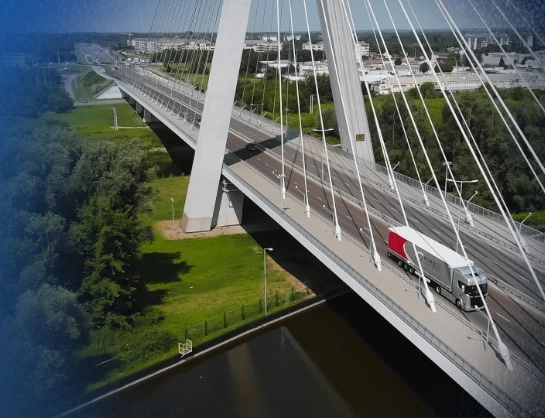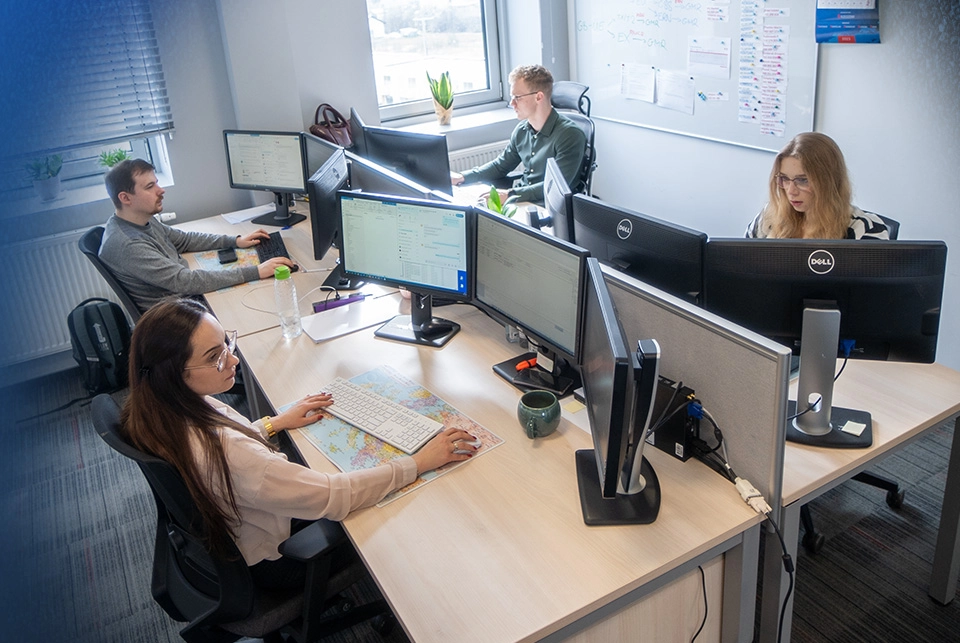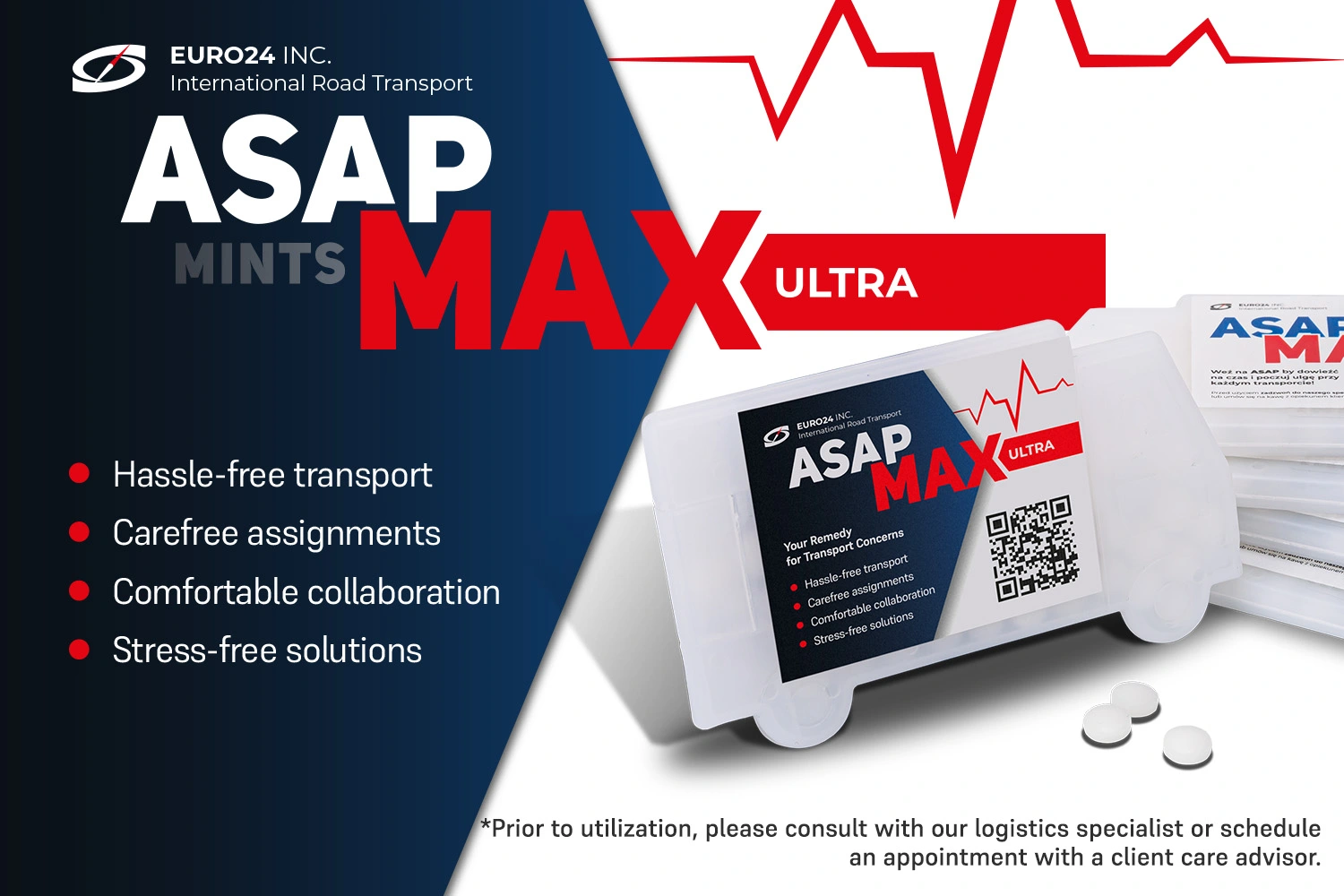Blog

Prospects in the TSL industry: Navigating uncertain times
As the complexity of global supply chains continues to rise and the economic environment undergoes dynamic changes, the Transport, Shipping, and Logistics (TSL) industry faces a plethora of challenges and opportunities in 2024. From sustainable development to digital transformation, these key themes are shaping the future of the sector.
Sustainable development and corporate social responsibility in the TSL industry
The TSL industry is increasingly focused on sustainable development, striving to minimize its environmental impact. Companies are implementing advanced technologies to reduce carbon emissions, including investments in low-emission fleets and the development of electric vehicle charging infrastructure. These initiatives are part of broader Corporate Social Responsibility (CSR) programs that also aim to improve working conditions for drivers, optimize routes, and enhance operational efficiency.
Innovation and collaboration with technological partners and research institutions are key to success in this area. The emphasis on sustainable development and environmental protection is more urgent than ever, with low-emission transportation and CO2 emission reduction at the forefront. Companies across the sector are actively engaged in CSR activities, seeking innovative solutions for more economical logistics.
European Emissions Trading System
In response to these challenges, the European Union will introduce a new system, known as ETS 2. This system will extend existing regulations to sectors not previously covered, such as home heating, road transport and other additional sectors. ETS 2 will impose fees on CO2 emissions from coal, gas and fuel oil, which will affect many users of these energy sources in Poland. Although the full implementation of the ETS II (European Emissions Trading System) has been postponed to 2027, companies should already be preparing for its introduction, which could impact costs and operational strategies to reduce greenhouse gas emissions.
Vehicle Management System

At Euro24, we place great emphasis on the efficiency and safety of our transport operations. For this reason, we have implemented a fleet monitoring system that not only allows precise tracking of each vehicle’s mileage but also automatically generates alerts for upcoming maintenance and inspections. This system enables meticulous documentation of each vehicle’s repair history, which is invaluable for managing fleet longevity. Additionally, this innovation plays a crucial role in controlling and optimizing costs and fuel consumption, resulting in reduced usage and increased operational efficiency. Transport safety is further enhanced by advanced diagnostics, which can detect potential failures before they occur, minimizing the risk of downtime and associated losses.
At Euro24, we continuously strive to elevate operational standards, ensuring reliability and the highest quality of transport services across Europe. We believe that the key to success lies in constant improvement and innovation, which is why we are always seeking new solutions to meet the challenges of the modern transport market.
Safety
Diagnostics
Optimize fuel consumption
Digital transformation and Artificial Intelligence
Digital transformation is an essential component of the strategy for TSL (Transport, Shipping, and Logistics) companies, enabling them to maintain competitiveness in a rapidly evolving market. The intelligent application of AI, particularly in route optimization and fleet management, can significantly enhance operational efficiency and reduce costs.
AI also contributes to better demand forecasting, automation of administrative processes and improved customer service. A key challenge is integrating new technologies with existing IT systems and developing digital competencies among employees. Adapting to the digital transformation and intelligently implementing artificial intelligence, are key to staying competitive. Companies that fail to adapt to these changes may be left behind.
At Euro24, we are constantly seeking new solutions to enhance our operations and better meet the needs of our customers. We are currently working intensively on implementing AI-based systems for data management. These technologies will enable us to conduct deeper analyses of collected information and optimize decision-making processes within the company. Our growth is not only technological but also communicative — our business environment is a crucial source of knowledge for us. Regularly conducted quality surveys and active listening to our customers’ feedback allow us to quickly adapt to the changing market expectations. We implement changes and suggestions that align with our development strategy, and sometimes, in response to clearly outlined needs from the research, we decide to change our current business directions. This approach also contributes to opening new branches closer to our customers and expanding our offerings to better meet the specific demands of the transport and logistics industry in Europe.



Economic challenges in key markets for the TSL industry
Western economies, such as Germany, which serve as a major trading partner for many TSL firms, are experiencing economic challenges that directly impact the industry. A downturn in industrial production leads to a decreased volume of goods transported, putting pressure on margins and operational efficiency within the TSL sector. To address these challenges, diversification of service offerings, exploration of new markets, and investment in innovation are crucial. These strategies can increase flexibility and the ability to respond swiftly to changing economic conditions. The direct impact of production cutbacks on the volume of transported goods presents challenges for the TSL industry, requiring companies to navigate through economic downturns with strategic foresight and resilience. The insolvency of contractors, triggered by economic difficulties, increases financial risks for TSL companies, necessitating greater caution and better risk assessment. In this uncertain economic environment, TSL companies must adapt their strategies to mitigate risks and seize opportunities for growth.
Customer relations in tough economic times
In the face of economic turbulence, it is becoming crucial for transportation and freight forwarding companies to skillfully manage their customer relationships in order to not only maintain, but also strengthen their position in the market. It is important to communicate with customers on a regular basis to keep them informed about the status of orders and any changes. With transparency, customers feel safer, knowing that their business partner is in control and looking out for their interests.
It is equally important to adapt the offer to the current needs and capabilities of customers. A flexible approach to the terms of cooperation, such as adjusting payment terms or offering individually tailored logistics solutions, can significantly increase customer loyalty. Also, don’t forget to take a proactive approach to problems – instead of waiting for customer requests, it is worth identifying potential obstacles yourself and informing customers about them, while proposing possible solutions. In these difficult times, investing in developing customer relationships and building trust through constant communication, flexibility and proactivity can prove crucial to maintaining the company’s stability and growth prospects.
In light of the economic challenges affecting key markets for the TSL industry, Euro24 is consistently striving to diversify its international presence. This is why the company currently has branches in several European countries, including five locations in Poland, where we recently and proudly opened another new branch. Our strategy involves not only geographical expansion but also building teams that thoroughly understand local conditions and needs. This approach enables us to better tailor our services to the specificities of each market in which we operate, increasing our resilience to changing economic conditions and allowing for more flexible responses to our customers’ needs. Such a strategy strengthens our market position and ensures operational stability during times of economic uncertainty.
New fifth Euro24 branch in Poland
We are pleased to announce that in June, we opened our fifth branch in Poland and the eighth in Europe. This new facility represents another strategic point aimed at bringing us closer to our customers. We always listen to your suggestions, which allows us to build lasting relationships based on mutual trust. The opening of this new branch is a response to market needs, and you can expect more exciting developments soon. We warmly invite you to visit our new office in Balice at 50 Krakowska Street. Thank you for your support and trust.
We are building the future of transport >>

Geopolitical uncertainty
Exchange rate fluctuations
Changes in trade regulations
Disruption in the flow of goods
Geopolitical uncertainty, particularly in regions critical for international supply chains, poses significant risks for the TSL (Transport, Shipping, and Logistics) industry. Currency fluctuations, changes in trade regulations, and potential disruptions to the flow of goods necessitate increased flexibility and effective risk management strategies. Monitoring and analyzing geopolitical scenarios, as well as diversifying transport routes and business partners, are essential for minimizing potential disruptions.
Addressing logistical challenges at the eastern border is crucial for carriers serving this market. Ensuring the smooth flow of goods despite geopolitical tensions remains a priority. The dynamic geopolitical landscape creates uncertainty, impacting the stability of supply chains and currency rates, which requires heightened adaptability and resilience.
Transport Monitoring at Euro24
The Monitoring Department at Euro24 (also known as Control Tower) monitors the movement of goods around Europe and the flow of information between the driver and the customer. This team verifies that the correct goods have been loaded and that the vehicles arrive on time. In addition, our Control Tower controls the documents needed for the transport, which the driver received at the loading.

Changes in the labor market
The evolution of the labor market from a driver-centric to a carrier-centric model presents challenges for the TSL industry, requiring thoughtful human resource management. Rising labor costs and changing employee expectations necessitate TSL companies to enhance their attractiveness as employers, invest in training and skill development, and utilize modern talent management tools. Adapting to these changes is crucial for ensuring operational continuity and maintaining competitiveness in the market. Further changes resulting from the mobility package introduce new regulations regarding drivers’ working hours, demanding flexibility and adaptation from TSL companies. The rising costs of labor are a challenge across all sectors, including TSL, forcing companies to seek ways to optimize costs and operational efficiency. Market consolidation, including bankruptcies and liquidations of companies, and the sale of fleets, combined with changes in the production sectors, pose challenges for the industry, requiring increased flexibility and innovation.
These five areas highlight the complexity of challenges facing the TSL industry in 2024. Addressing them will require strategic planning, innovation, and readiness to adapt in a rapidly changing economic and technological environment. Together, these factors compose a complex picture of the TSL industry in 2024, where risk management, innovation, and flexibility will be key to success. In the face of these challenges, TSL companies must remain vigilant, adapting to the changing environment and leveraging new technologies to ensure the fluidity and efficiency of global supply chains.
Have you got questions?
Drop us a line. Together, we’ll identify solutions for your transport requirements.
Arrange a “virtual coffee” with our Sales Representative and find out how we can ensure the collaboration comfort you’re after. Eliminat the stress associated with transport. Our staff carefully identify your transport priorities to craft a bespoke offer.
Discover how we can bolster your business.
GET YOUR TRANSPORT QUOTE AS SOON AS POSSIBLE >>


